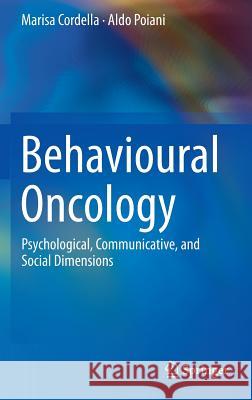Behavioural Oncology: Psychological, Communicative, and Social Dimensions » książka
Behavioural Oncology: Psychological, Communicative, and Social Dimensions
ISBN-13: 9781461496045 / Angielski / Twarda / 2014 / 802 str.
Medical, educational, and public health efforts have reduced the spread of many major diseases, yet cancer perseveres, in spite of continuing research and improvements in practice. Especially promising among therapeutic strategies are ones that recognise patients as individuals with thoughts, feelings--and speech.Rooted in deep understanding of the mutual relationship between behavior and cancer, Behavioural Oncology combines extensive clinical wisdom and empirical data to illuminate the psychological, social, and existential aspects of cancer, and to offer a framework for empathic, patient-centered care. Chapters delve into the psychobiology of long-term illness, examining stress, pain, fatigue, sensory and sleep disturbances, and other quality of life issues as well as considerations of age, gender, culture, and comorbidity. The book's emphasis on linguistic and communicative aspects of cancer--and practical skills from respecting patient narratives to delivering bad news--adds necessary depth to concepts of the therapeutic relationship. In this way, the authors warn about overmedicalizing cases to the point of losing patient identity. Major areas of the coverage include:
- Biology and behavior in cancer prevention and suppression.
- The psychology of cancer patients: emotions, cognition, and personality
- Social dimensions, including stigma, coping, and social support
- Language, communication, and cross-cultural issues
- Existential, spiritual, and end-of-life concerns
- Doctor-patient relationships
- The psychological benefits of complementary therapies











